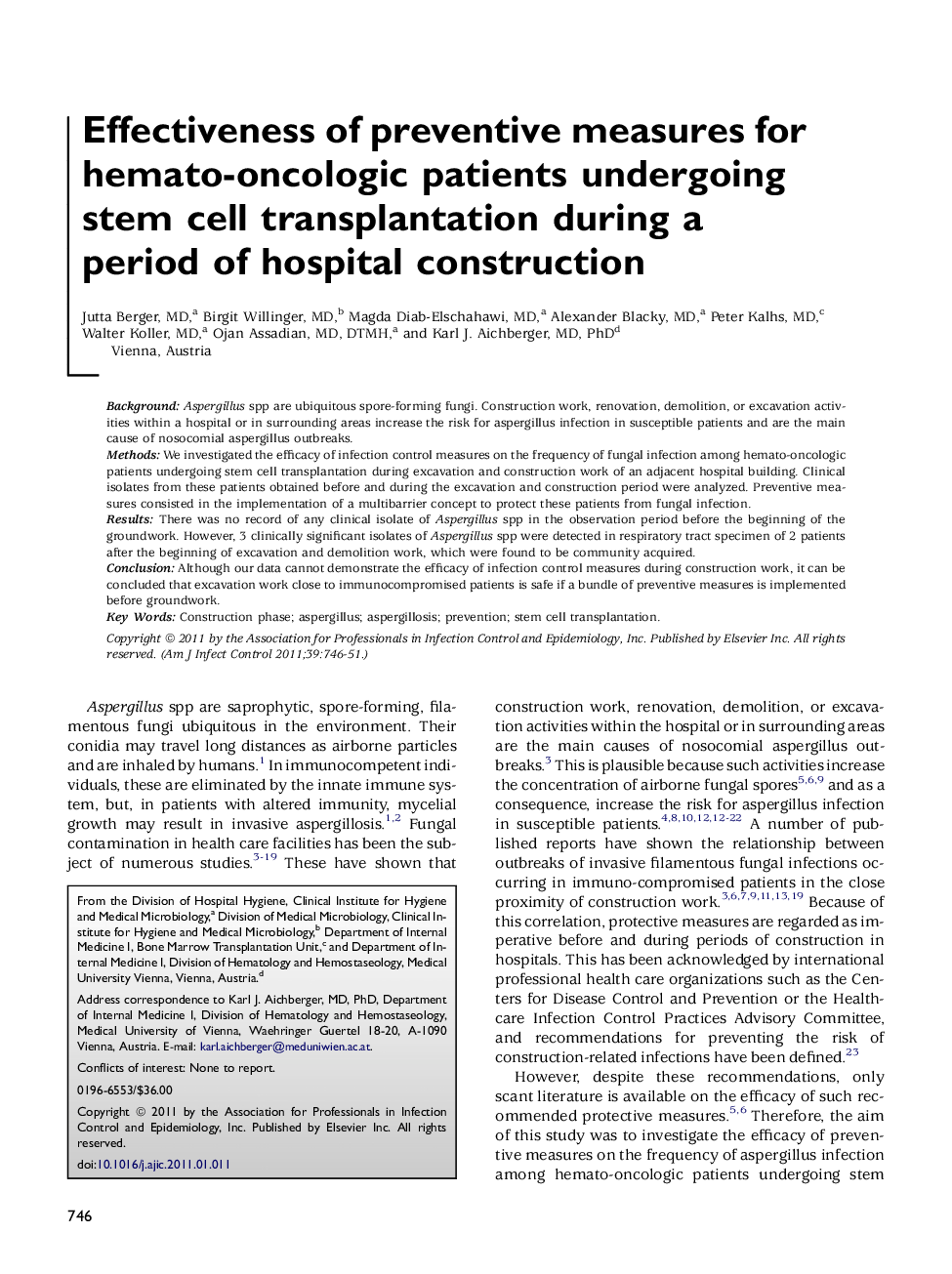| Article ID | Journal | Published Year | Pages | File Type |
|---|---|---|---|---|
| 2637810 | American Journal of Infection Control | 2011 | 6 Pages |
BackgroundAspergillus spp are ubiquitous spore-forming fungi. Construction work, renovation, demolition, or excavation activities within a hospital or in surrounding areas increase the risk for aspergillus infection in susceptible patients and are the main cause of nosocomial aspergillus outbreaks.MethodsWe investigated the efficacy of infection control measures on the frequency of fungal infection among hemato-oncologic patients undergoing stem cell transplantation during excavation and construction work of an adjacent hospital building. Clinical isolates from these patients obtained before and during the excavation and construction period were analyzed. Preventive measures consisted in the implementation of a multibarrier concept to protect these patients from fungal infection.ResultsThere was no record of any clinical isolate of Aspergillus spp in the observation period before the beginning of the groundwork. However, 3 clinically significant isolates of Aspergillus spp were detected in respiratory tract specimen of 2 patients after the beginning of excavation and demolition work, which were found to be community acquired.ConclusionAlthough our data cannot demonstrate the efficacy of infection control measures during construction work, it can be concluded that excavation work close to immunocompromised patients is safe if a bundle of preventive measures is implemented before groundwork.
